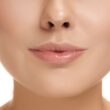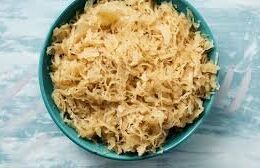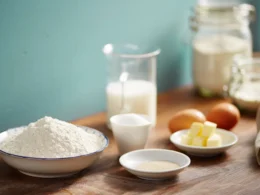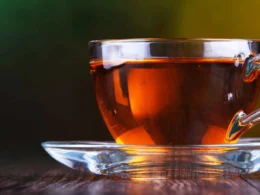What is matcha?
Matcha is a type of green tea that has gained worldwide popularity in recent years. Unlike other green teas where tea leaves are steeped in hot water and then removed, matcha is finely ground green tea leaves made into a bright green powder. This powder is whisked into hot water to create a distinctive vibrant green beverage with umami flavor notes. Matcha has traditionally been used in Japanese tea ceremonies. Due to the unique way it is grown and processed, matcha offers superior nutrients compared to other green teas.
Caffeine content in matcha
The caffeine content in matcha falls between 18.9-44.4 milligrams per gram of tea powder according to research studies. This caffeine content is higher than other types of green tea which contain approximately 11.3-24.67 mg/g. It is comparable to the 10-12 mg/g of caffeine found in coffee beans. However, the actual caffeine amount per serving can vary significantly depending on how a person prepares their matcha beverage. A typical serving uses 1-4 grams of matcha powder which equates to about 38-177 mg of caffeine. In comparison, an 8oz cup of coffee has around 95 mg of caffeine. The slow release of caffeine from L-theanine consumption in matcha provides sustained energy without spikes and crashes experienced from coffee.
Factors affecting matcha caffeine levels

Several variables can impact the actual caffeine concentration in any batch of matcha, including growing conditions, leaf age, grinding techniques, and steeping methodology. Longer sunlight exposure during farming leads to higher levels of caffeine production in matcha leaves. In general, matcha powder manufactured from younger leaves contains less caffeine than powder from older leaves. More finely powdering the tea leaves increases surface area exposed to hot water, extracting higher total caffeine levels. Using more matcha powder or brewing with hotter water also translates to higher caffeine extraction during preparation. Understanding these factors helps explain the considerable range in caffeine content reported between 19-44 mg/g.
Matcha vs coffee caffeine comparison
While coffee and matcha both contain caffeine and are popular stimulant beverages, matcha’s caffeine dynamics differ greatly from coffee. When comparing caffeine by weight, matcha contains between 18-44 mg of caffeine per gram of powder. In contrast, most coffee beans hold approximately 10-12 mg of caffeine per 1 gram. However, looking deeper, matcha provides a much more gradual and sustained release of caffeine into the bloodstream through digestion compared to coffee. This is largely attributed to the presence of the amino acid L-theanine uniquely found in matcha. L-theanine binding with caffeine enables an even, smooth dispersal over several hours instead of sharp spikes that coffee delivers through rapid absorption. As a result, matcha typically elicits an alert state without anxiety or loss of energy known as the “coffee crash” that often follows a few hours after coffee intake. Matcha’s sustained caffeine effect can support focus and productivity for up to 6 hours without edginess.
Effects of matcha caffeine

Matcha’s unique caffeine profile has distinct advantages versus caffeine consumed through coffee beans alone. Namely, the slow, controlled absorption of energy over half a day brings clarity and mental engagement without jitteriness or subsequent crash in energy levels. Some key effects of matcha’s caffeine delivery system via L-theanine binding include:
- Sustained physical and mental alertness for up to 6 hours without disruptive spikes or dips in focus
- Reduced anxiety and stress sensations common with coffee despite its stimulant properties
- Uplifted mood through dopamine receptor activation and serotonin production
- Increased reaction time, vigilance and coordination important for activities like driving or work tasks
- Maintained stamina without energy imbalance helping stay on task throughout the day
These benefits are due to matcha’s slower, gentle release of caffeine that doesn’t trigger sudden adrenaline surges but maintains steady levels over hours preventing jitters, anxiety and subsequent “crashes” often experienced with coffee.
Benefits versus risks of matcha caffeine

The key upsides of matcha caffeine when consumed moderately include sustained energy, mental acuity and positive mood effects without side effects. However, just like coffee, overconsumption of matcha’s caffeine can cause insomnia, restlessness, headaches and digestive upset. For most healthy individuals, 1–2 grams (about 1⁄2-1 teaspoon) of matcha is sufficient to experience benefits without side effects. This provides approximately 38-177mg of caffeine, comparable to just 1 cup of coffee. Pregnant women and those highly sensitive to caffeine may find even this amount disruptive and should instead favor decaffeinated options. High matcha servings may theoretically interact with medications that affect CYP450 liver enzymes. Overall though, moderate matcha offers a gentler caffeine boost when not overindulging beyond individual tolerance levels.
Summary
In summary, recent comparative research illuminates both how and why matcha may confer more sustained enhancement compared to isolated coffee’s caffeine alone. Matcha green tea powder forms a complete beverage containing healthy amino acids, minerals and far more antioxidants per serving. However, it is the controlled release of its caffeine molecules alongside L-theanine that prevents negative side effects from stimulation. For most individuals, moderate intake – about 1⁄2 teaspoon of matcha powder provides nutritional energy without repercussions. When chosen judiciously over other highly caffeinated beverages like multiple cups of coffee daily, matcha green tea can serve as a potent yet gentle daily health booster.








